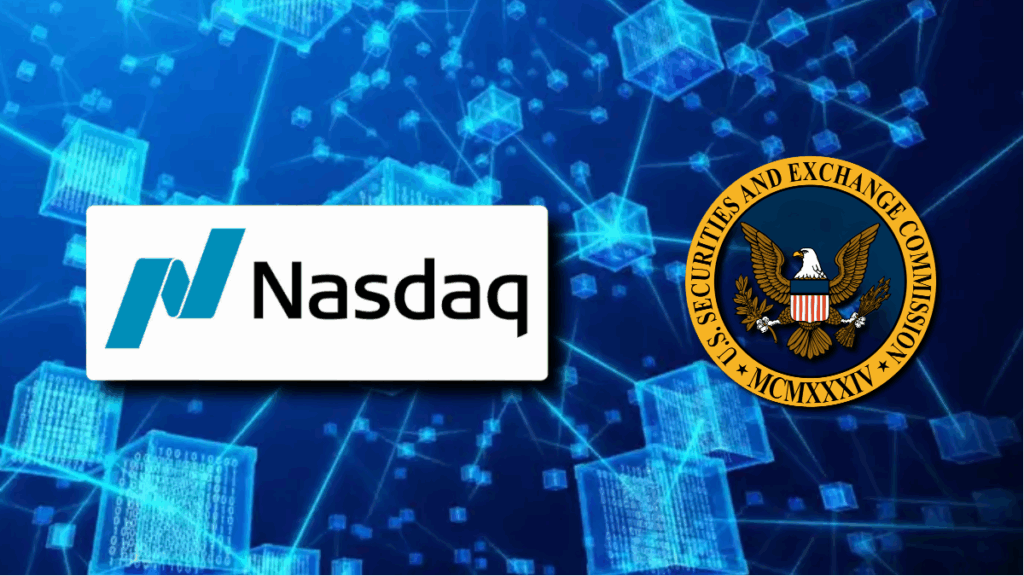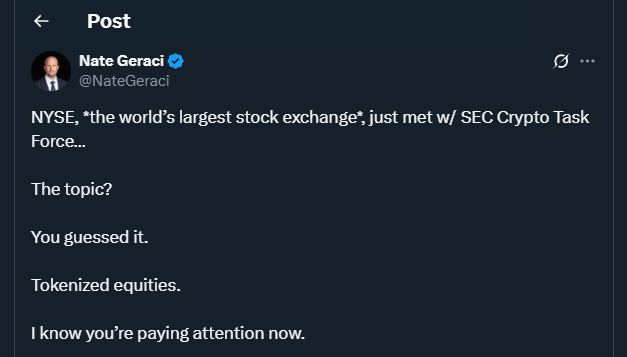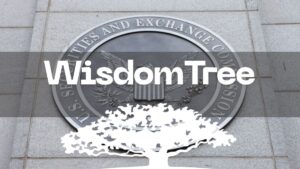TL;DR
- The SEC is evaluating a proposal that would allow blockchain-based versions of publicly traded stocks to be listed on regulated crypto exchanges.
- The initiative comes as major financial players, including Nasdaq and Coinbase, explore direct involvement in tokenized equity markets.
- If approved, the plan could accelerate Wall Street’s shift toward blockchain infrastructure while reducing settlement delays and operational costs.
The U.S. Securities and Exchange Commission is reportedly reviewing a framework that would let investors trade tokenized versions of traditional stocks on authorized cryptocurrency platforms. These stock tokens would represent legal ownership in publicly listed companies, with transfers recorded on blockchain networks instead of legacy clearing systems. Sources cited by The Information claim the initiative remains under internal discussion but is gaining traction across multiple divisions of the agency, especially within market structure and innovation units.
Supporters of the proposal argue that blockchain-based equities could eliminate multi-day settlement periods and reduce reliance on third-party intermediaries such as clearinghouses. Former SEC officials have publicly acknowledged that tokenization, when executed under strict oversight, could increase market transparency and improve global liquidity. Several pilot projects already exist across Europe and Asia, where regulated exchanges conduct real-time settlement of digital securities using enterprise-grade blockchain infrastructure.
Traditional Institutions Signal Interest
Nasdaq recently requested clearance to list tokenized financial instruments, while Coinbase is reportedly preparing a licensing application to operate as a broker for digital equities. Brokerage platforms like Robinhood and Kraken have also conducted early experiments with synthetic stock tokens in overseas markets. Analysts note that institutional adoption has accelerated since BlackRock formed a tokenization division earlier this year, signaling broader confidence in blockchain-enabled finance.
Industry Debate Intensifies
However, not all legacy trading firms are ready to commit. Citadel Securities submitted a letter urging regulators to verify that blockchain rails provide genuine efficiency, rather than serving as a loophole for lighter compliance. Despite the skepticism, industry data suggests momentum is shifting. More than $31 billion worth of real-world assets have now been tokenized on public and permissioned blockchains, although equities still represent a small fraction of that total.

A recent report from Binance Research compares today’s surge in tokenized securities to the early expansion of decentralized finance in 2020. The study estimates that if just 1% of global stock markets migrate to blockchain-based settlement, the digital equity sector could exceed $1.3 trillion in value. For investors seeking faster, programmable ownership models, the SEC’s next move may determine how quickly that crossover happens.











